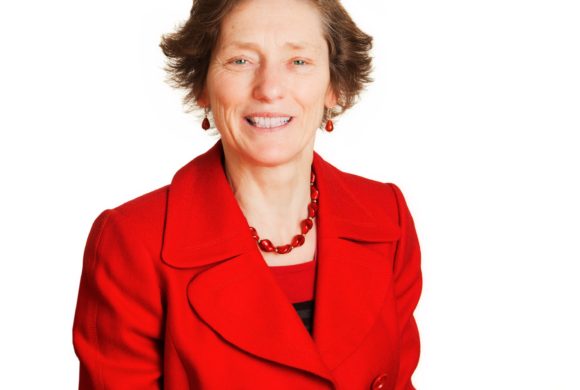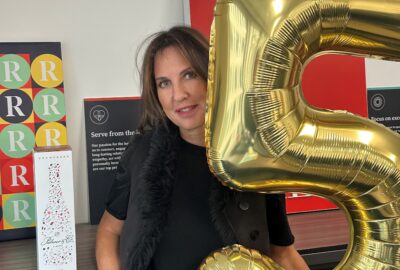
Annabelle kindly speaks with RedLaw in her final week at Fladgate before heading off on retirement. We talk about changes over her HR career, her greatest professional achievements and her key tips on making the best legal hire.
Annabelle, you have had a full and varied career spanning over 30 years within the HR arena. What have been the biggest changes or developments you have seen in the HR/Recruitment industries and how have they affected the way in which we now hire talent?
Although there have been any number of changes, when I look back to my early days I am struck by how similar things are today. The ability to attract and retain the best talent is as essential for professional services firms today as it was when I started my career.
The main difference is that senior management generally appreciate that without the right people they have no business. Previously, lawyers worked much more in “silos” and the importance of professional business functions was not widely recognised.
The biggest changes during my working life have been the speed of communication, 24/7 working and the ever-increasing demands of clients (both internal and external). Before “Big Bang” in October 1986 most letters went by post and urgent messages by fax or telex, giving us a chance to consider a response. I strongly believe reflection and consideration are today much under-rated. Who has not fired off an email too rapidly and regretted it the next morning ?
IT has undoubtedly brought many advantages. I was a pioneer of using a firm’s website to attract candidates and I have always used a mix of direct recruitment and agents. While the use of LinkedIn and other IT based methods will continue to grow, I think that it may turn full circle in the future as lawyers grow increasingly irritated by the number of approaches they receive.
The increased use of IT has led to a proliferation of head hunters and other recruiters, some of whom need to smarten up their act. I am frequently contacted by individuals who have never met their candidates and have no idea of what they are looking for or what they can offer us. They usually have little knowledge of Fladgate and, in my view, many of them bring the industry into disrepute. This reflects badly on the many genuine and hard-working recruiters who are aghast at the lack of regulation in their profession.
How has the legal market changed during your professional career and how do you see it changing over the next few years to come?
Some of the major developments include the increasing globalisation of the legal market, the growth of the US firms in London, the reduction in the number of firms due to mergers and consolidation and the increasing commoditisation of certain areas of work.
The legal world is more fluid. Associates and partners move much more frequently; the ways into the law are no longer set in stone; and the importance of offering more flexible working conditions and having a diverse workforce are now high on everyone’s agenda.
Change is now the new normal – firms and individuals not alive to the essential need to evolve and respond to the changing needs of clients and the market will not survive.
Looking ahead, I believe the consolidation of the market, particularly in the middle ground, will continue. There will be more “virtual” law firms and new ways of working. Although there will always be a need for the high quality talent to deliver tailored legal services, much of the remainder of legal work will, I anticipate, be carried out by less highly paid individuals. A two tier legal profession is a distinct possibility. The growth of apprenticeships, the introduction of alternative methods of qualification and the proposed SQE make this inevitable as clients reduce their legal spend and increase their expectations. Coping with these changes will keep recruiters and law firms on their toes.
More women will reach the top of law firms and the other diversity initiatives will deliver a much less monolithic, male, grey-suited world than the one I joined many moons ago.
You have played an integral role at Fladgate over the last 6 years assisting the business to double in size. How has Fladgate positioned itself or adapted its offerings to ensure it attracts and secures the best legal talent in the industry?
Shortly before I joined the firm, Fladgate moved from the West End to Covent Garden. This proved to be a catalyst for our growth. The offices are fabulous (but not OTT) and the location is great for both our clients and people who work here. The location and building have helped us to sell the firm.
Fladgate has, in my view, for too long been somewhat “coy” about its talents and achievements. I am pleased that in the last 5 or 6 years it has become better known in the market. We pride ourselves on our partner-led, solutions-focused service that combines legal and transactional excellence with practical efficiency. We are nimble – we have the breadth of expertise to advise on large-scale, complex transactions and the agility to support entrepreneurs. We provide a technically expert, efficient service delivered by commercially aware, experienced, multilingual and multi-qualified teams of lawyers.
Throughout your career you have helped with over 100 lawyer hires. What, in your opinion, makes for a successful hire and what doesn’t?
It is essential to see the process as a whole and to manage it throughout. The candidate journey starts from the first contact and doesn’t stop when an offer is accepted. On-boarding, induction, training, development and working with individuals throughout their career (and as alumni, referrers of work and potential clients after they leave) are all part of a continuous process.
It is important to ensure your website and others sources provide candidates with the information they need to inform themselves about the firm and the opportunities offered. You want them to make a decision which has to be right for them and for the firm. Recruitment is a two-way process – never forget this.
Other tips:
- be open with people, listen carefully and actively, be flexible but very clear about what you can offer and what you can’t, don’t over-promise;
- be honest, set out the opportunities, don’t hide the downsides (you never know the candidate might see them as advantages); and
- don’t pre-judge people.
Above all, treat everyone as important and always leave candidates feeling good about their time at the firm. Manage your candidate experience and they will help to consolidate your brand and reputation for years to come.
What does a typical Fladgate employee look like? What main attributes do you look for. And what words of wisdom could you share for any lawyer looking to join the Fladgate team.
There is no typical Fladgate employee. The strength of the firm is that our partners and employees are not cloned although they share values and many common attributes. They are all talented individuals who enjoy working together and it shows. Fladgate is a very well managed business, we have no debt and new partners are delighted to discover this means their profit shares are paid on time and they can confidently leave the management of the firm to others. This leaves partners free to focus on managing and developing their clients.
People who join tell us that Fladgate is a friendly and enjoyable place to work. They are surprised at the lack of hierarchy and how approachable and collegiate everyone is. People work very hard but there is no ”face time”; we want people to have a life outside the office.
It is not a “sink or swim” environment. Partners and senior lawyers dedicate a lot of time and energy to developing less experienced colleagues. However, they also expect associates to take responsibility for their own development and to maximise the many opportunities which present themselves. Our structure is very different from the pyramid structure of most large law firms. We are partner heavy and the size of most deals means that usually paralegals, trainees or junior associates will work directly with senior partners. This provides great opportunities for personal development and more direct client contact than at many firms but it also calls for resilience and the ability to manage workloads and partner expectations. It can be challenging but is very rewarding.
What has been the proudest achievement throughout your extensive HR career. Which one thing stands out above the rest?
Seeing a trainee (recruited in her final year of a non law degree) make it to partner in record time as the head of a new niche area of the business. Many years later she is still in the role. I love seeing people develop and maximise their potential.
You have connections with RedLaw. How would you describe the service and/or the team?
I have always enjoyed working with RedLaw – Amy and Jonathan have developed a good knowledge of Fladgate and what makes us tick. They have worked hard to understand us, our business and what differentiates us from other firms. They are honest with us and give us good feedback and respond to our feedback. Working with them is fun and above all a successful partnership.
And lastly, you are set to retire in a few weeks. What will be your fondest memories you will take away with you from working at Fladgate? And what are your first plans for retirement?
I have loved working at Fladgate. At every level and in every area of the firm it is the people that make it and I will miss them all, particularly the great HR team of which I have been privileged to be a member.
I have lots of plans, mainly involving friends, travel and sport. Much of my time will be spent on my bike or the tennis court, in the gym, sailing, playing bridge or developing my nascent knowledge of oenology. I also love good food, the theatre, films and reading… I don’t think there is any danger of my vegetating or growing bored (at least for a few weeks).


